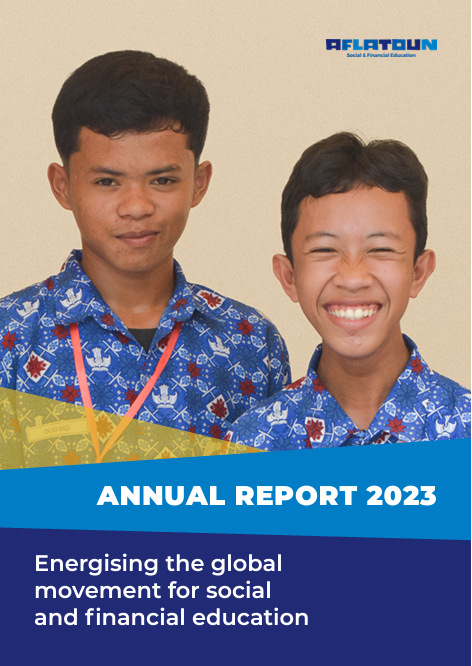For 120 years, Caritas Switzerland has been operating to prevent, alleviate and combat poverty worldwide. Founded in 1901 by Father Rufin Steimer, its main strategic mission has always been to fight poverty with strong partnerships. Today, Caritas Switzerland works in more than 20 countries across the globe. One of their offices is located in the Syrian Arab Republic, and Caritas Syria started their partnership with Aflatoun in 2021.
The organisation focuses on enhancing access to income, empowering local markets and improving local skills. The unique aspect of Caritas is its extensive expertise in using the Cash and Voucher Assistance (CVA) approach to localise humanitarian intervention. CVA refers to the programmes in which vouchers and cash are delivered directly to the aid recipients to buy goods and services. In this way, the individuals, households or communities in need are given back the ability to make their own decisions on how to best spend the cash or vouchers for their essential needs.
Besides CVA, Caritas carries out initiatives such as Livelihoods and Educational programmes.

Our Partnership
Caritas Syria partnered with Aflatoun in 2021, though they had already collaborated with us through other partners prior to that. What interested them was Aflatoun’s experience in the region and the project to develop together an innovative approach for Livelihoods interventions in Syria.
In order to do this, Caritas will implement the Life Skills and the Employability programmes, to teach young people how to enter the labour market.
In their opinion, this partnership will help them enhance local skills and capacities, as well as introduce interactive teaching and training. In fact, they shared that social and financial education would help the Syrian community shift from needing humanitarian aid to a more sustainable future, hence a community that can generate income independently.
The Story of Mouhannad Sarhil
Caritas Syria used the Aflatoun curriculum, especially the Life Skills and Employability to support the project team in ensuring that the required education and skills for sustainable livelihood pathways could be delivered in an interactive format and this could be well understood by the targeted youths.
One of the beneficiaries of the programme is Mouhannad Sarhil, 28 years old.











